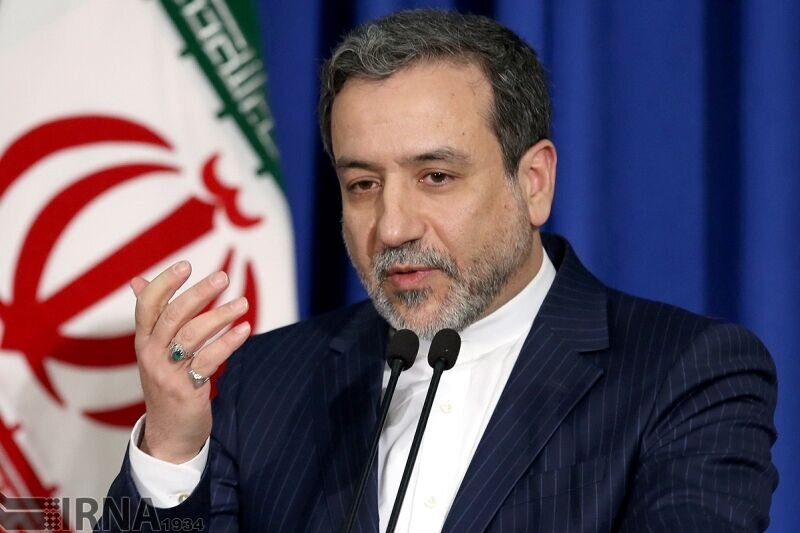U.S. has shown flexibility over Iran’s oil sale: Araghchi

TEHRAN - Iranian Deputy Foreign Minister for Political Affairs Abbas Araghchi said on Saturday that the United States has shown flexibility over Iran’s oil sale and this shows success of the Islamic Republic’s policy of maximum resistance.
“French President Emmanuel Macron met with President of the United States Donald Trump on sidelines of G7 summit and the U.S. has shown flexibility for sale of Iran’s oil. This is failure of the United States’ policy of maximum pressure. This is success of the Islamic Republic of Iran’s policy of maximum resistance,” IRNA quoted him as saying.
He noted that Iran will return to full implementation of its commitments under the 2015 nuclear deal, known as the JCPOA, if the country’s demands, such as selling its oil and having banking interaction, are met.
“Our demand is totally clear. If the Europeans and other parties to the JCPOA want us to return to full implementation of the JCPOA, they should meet our demand regarding selling oil,” he said.
U.S. President Donald Trump withdrew Washington in May 2018 from the JCPOA, which was reached between Iran and six world powers in 2015.
Afterwards, Washington re-imposed sanctions on Iran that had been lifted under the deal and ordered new ones.
On May 8, exactly one year after the U.S. withdrew from the multi-nation nuclear agreement, Iran announced a partial withdrawal from some aspects of the pact, saying that the country would no longer adhere to some of the limits on its nuclear activities. It also threatened to step up uranium enrichment if an agreement is not made within 60 days to protect it from the sanctions’ effects.
In follow-up to that deadline, on July 7 Iran announced that it has started enriching uranium to a higher purity than the 3.67% as the Europeans missed the 60-day deadline to devise a concrete mechanism to protect the country from the U.S. sanctions.
President Hassan Rouhani said on August 14 that Tehran will start the next step of reducing nuclear obligations after the second 60-day deadline.
The third step can include installation of more centrifuges, especially advanced ones.
In an interview with the Sueddeutsche Zeitung newspaper published on Tuesday, Iran’s Foreign Minister Mohammad Javad Zarif said the country will begin suspending more of its commitments under the nuclear deal between on September 6.
Paragraph 36 of the JCPOA provided a mechanism to resolve disputes and allows one side, under certain circumstances, to stop complying with the deal if the other side is out of compliance.
European Union foreign policy chief Federica Mogherini has called for preserving the JCPOA.
According to Middle East Monitor, she said in statements, on Thursday, that “holding dialogue on the basis of clarity and respect is the best way to reach an understanding”, pointing out that the European countries have focused during the past years on maintaining the agreement and respecting all its requirements, and that there is more work to be done.
Mogherini indicated that the joint plan of action (the nuclear deal) was an extension to the UN Security Council resolution, clarifying that it was “not an international or bilateral agreement, but rather a part of a series of resolutions adopted by the UN Security Council.”
She told reporters on Friday that the EU will continue working to preserve the nuclear deal.
Mogherini, British Foreign Minister Dominic Raab, French Foreign Minister Jean-Yves Le Drian and German Foreign Minister Heiko Maas met in Helsinki on Friday to discuss the JCPOA.
NA
Leave a Comment